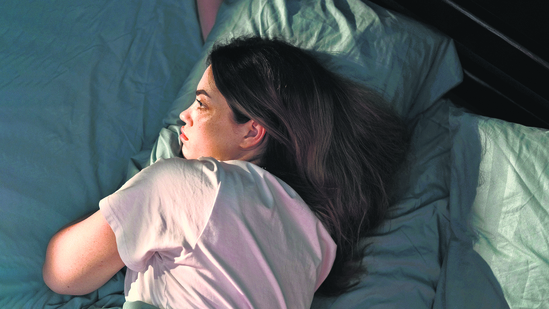Why women sleep less than men and how to fix it
A new report highlights a gender gap in sleep, with women getting less quality rest than men.
Sleep is essential for overall health, yet many women struggle to get enough of it. Recently, a new report by ResMed highlighted a striking gender gap, revealing that women have a harder time falling asleep and fewer nights of quality rest each week compared to men. On average, women get 3.83 nights of good sleep per week, while men get 4.13.

As per health professionals, hormonal changes play a major role, especially during menopause.
Dr Neetu Jain, Senior Consultant in Pulmonology and Sleep Medicine at PSRI Hospital, emphasises that chronic sleep loss can lead to serious health concerns. “Poor sleep increases the risk of heart disease, high blood pressure, and depression,” she warns.
What we eat before bedtime can influence how well we sleep. Dr Praveen Gupta, Principal Director and Chief of Neurology at Fortis Hospital, advises avoiding foods that interfere with sleep.
“Coffee and chocolate can delay sleep. Ice cream, sweets, and other sugary foods increase dopamine levels, making it harder to fall asleep. Citrus fruits can cause heartburn and indigestion, further disrupting sleep,” he explains.
He also stresses the importance of avoiding mentally stimulating activities before bed. “Stop working or planning the next day at least 30 minutes before bedtime. Avoid screens, heavy meals, and intense exercise before sleep. Instead, relax in a dimly lit, comfortable space.”
For those who struggle with sleep issues for more than three months, it may be a sign of chronic insomnia. In such cases, medical intervention or cognitive behavioral therapy may be necessary.
Essential oils can help create a calming bedtime routine. “Lavender, chamomile, and bergamot are known to reduce stress and improve sleep. Cedarwood supports serotonin production, which helps with sleep quality,” says Dr. Akshay Budhraja, Senior Consultant and Head of Respiratory and Sleep Medicine at Aakash Healthcare. He recommends diffusing these oils or applying them with a carrier oil before bed.
For women experiencing severe sleep disturbances, conditions like sleep apnea, restless legs syndrome, and parasomnias may be to blame. “Women are more prone to these issues, especially after menopause,” Dr Budhraja adds.
Some may also experience sleepwalking or night terrors. Narcolepsy, which causes sudden sleep episodes and extreme daytime tiredness, needs medical care. If sleep issues continue or affect daily life, it is important to see a doctor for proper diagnosis and treatment.
Technology can also support better sleep. White noise apps provide soothing background sounds that help the brain relax by masking distractions. Popular options include apps like myNoise, Zen, and Bettersleep. Even other music apps have playlists for white noise and meditation music.






